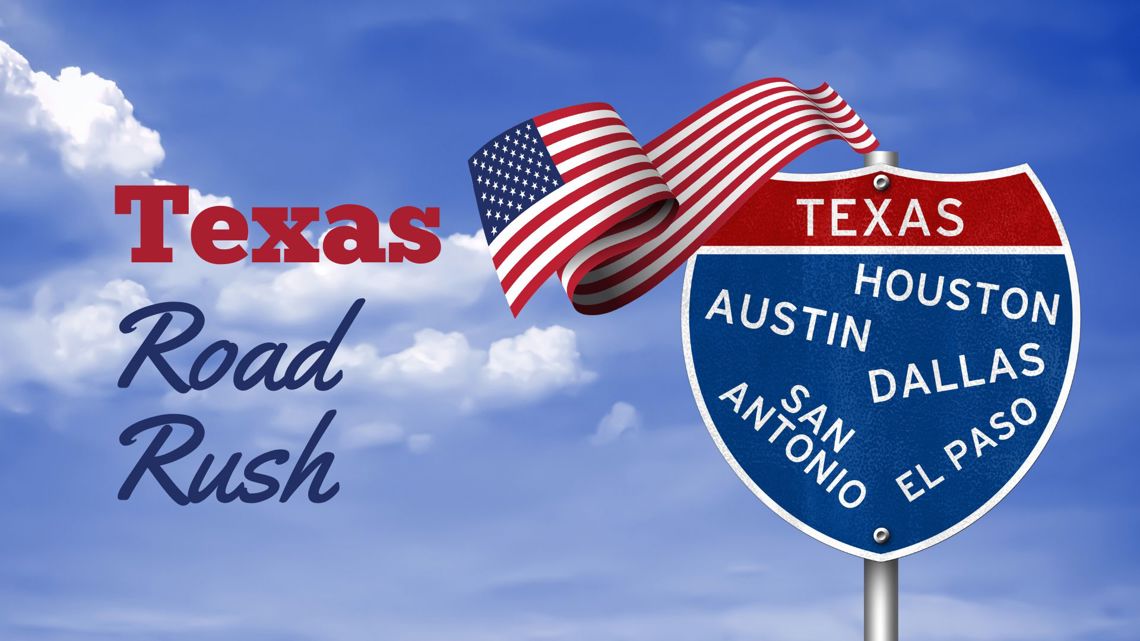
Texans are preparing to hit the roads in record numbers over the holiday weekend.
DALLAS — Texans are preparing to hit the roads in record numbers over the holiday weekend.
According to AAA Texas, an estimated 5.7 million residents will travel at least 50 miles from home between June 28 and July 6, which is a 2.2% increase over last year and a 9.9% jump compared to pre-pandemic 2019. The vast majority, about 4.9 million, will travel by car, reflecting a 2.1% rise from 2024 and confirming the Lone Star State’s deep connection with road trips.
But behind the excitement of fireworks, barbecues, and family getaways lies a troubling backdrop: a surge in impaired driving that continues to devastate Texas families.
In 2024, over 1,000 people were killed in DUI-alcohol related crashes across the state. That’s three lives lost every single day, including 64 fatalities and 223 serious injuries during the July 4th holiday weekend alone. These sobering figures come as the Texas Department of Transportation (TxDOT) launches its summer “Drive Sober. No Regrets.” campaign, targeting the deadly consequences of drunk driving.
Travel Trends vs. Years Past
This year’s numbers mark a significant rebound and continued growth in holiday travel:
- Up 369,000 travelers from 2024 (a 2.2% increase)
- Up 521,000 travelers from 2019 (a 9.9% increase)
Travel by air is also climbing modestly, with around 564,000 Texas flyers—a 1.2% bump over 2024. Meanwhile, alternative transportation modes (buses, trains, cruises) are seeing a 4.5% uptick, totaling approximately 244,000 travelers.
Nationally, AAA forecasts a record-breaking 61.6 million Americans traveling by road, making this the busiest Fourth of July travel season in U.S. history.
Avoiding Traffic: Best & Worst Times to Travel
With the roads expected to be jam-packed, especially on Wednesday, July 2 and Sunday, July 6, AAA and traffic analytics firm INRIX have identified the best and worst times to drive each day.
- On July 4, the worst travel window is 12 PM – 7 PM. The best time to depart is before noon.
- July 2 may bring the most severe congestion, with delays expected from 12 PM – 9 PM.
Texans are encouraged to travel early in the day (before 11 AM on most peak days) to avoid long delays.
The Hidden Toll of DUI: A Crisis on Texas Roads
While the travel surge paints a picture of post-pandemic recovery and patriotic celebration, TxDOT is reminding residents that July 4 also remains one of the deadliest holidays on Texas roads. In 2024:
- Dallas reported 3,558 DUI-alcohol related crashes, leading to 154 deaths and 323 serious injuries.
- Fort Worth saw 1,864 DUI-alcohol related crashes, resulting in 68 deaths and 175 serious injuries.
- Statewide, the July 4 holiday weekend alone saw 5,144 DUI-alcohol crashes—a devastating reminder of the risks associated with impaired driving.
TxDOT’s “Drive Sober. No Regrets.” campaign, which started June 26 and goes through July 13, aligns with heightened law enforcement patrols targeting drunk drivers during the holiday stretch. The message is clear: plan ahead, designate a sober driver, or stay put until you’re safe to drive.
Beyond the tragic human cost, the financial consequences of a DUI in Texas can reach up to $17,000 in fines, fees, and legal expenses, not to mention possible jail time, a lost license, and a criminal record that can affect employment, insurance, and more.
Travel Smart, Travel Safe
Whether you’re flying out of DFW, hitting the Gulf Coast, or heading to West Texas, AAA and TxDOT offer a few tips for a safer, smoother trip:
- Travel early to avoid heavy traffic
- Prepare your vehicle: Check tires, battery, oil, and fluids before any long road trip.
- Rest up before driving: At least 7 hours of sleep is recommended for alertness.
- Be aware of roadside workers: Slow down and move over for emergency or disabled vehicles.
- Never drive impaired: Choose a sober driver or rideshare service before you start drinking.
As celebrations light up the skies, don’t allow tragedy to strike on the roads below. Planning ahead, driving sober, and avoiding peak traffic times can mean the difference between memories made and lives lost.
